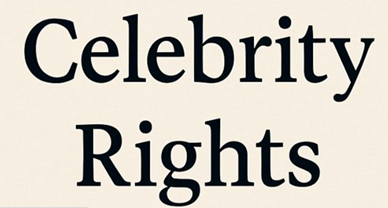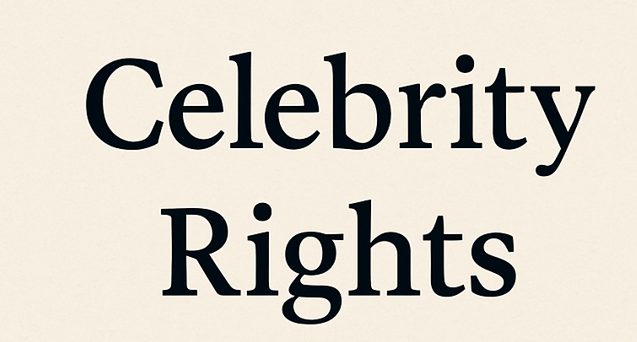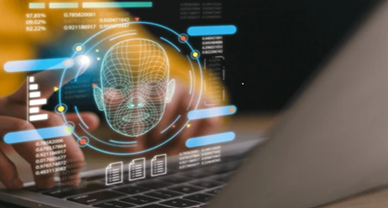Celebrity Rights: Understanding This Unique Right
With the emergence of Intellectual Property as an important and relevant sector of law and awareness among people about securing and protecting the product of their intellect has resulted in the birth of several unique rights which can be protected and monetized under IP laws. One such right is “Celebrity Rights”, though there isn’t a well-defined statutory provision defining, describing and elaborating this right but rather it is an amalgamation of a bunch of rights that have been recognized judicially and have relevant statutory provisions. Being recognized as a celebrity is seen as a badge of honor and is a dream come true for many. The curiosity among the general public to know every single detail about celebrities is a common trait seen all around the globe. This very curiosity of the people results in the media exploiting their freedom of speech and infringing upon the rights of the celebrities by capitalizing on their name and fame that they have toiled day and night to achieve. Such acts of vilifying celebrities or benefiting from their brand value, has made it a necessity to protect their rights. Celebrity rights aren’t just about protection of the name and fame earned by the celebrities but also about them being able to capitalize of their own ‘celebrity status’. The further commercialization of this ‘celebrity status’ catapulted IPR to be at the forefront to help celebrities monetize their identity in the public and the media while simultaneously guarding their rights.
Who is a celebrity?
The word ‘Celebrity’ is derived from a Latin word “celebritatem” which means “the state of becoming popular.” Being recognized in the public eye and having a persona that commands a certain degree of media and public attention can be attributed to as a parameter for qualifying as a celebrity. The fame of a celebrity isn’t dependent on talent as is, in the case of a ‘Performer’. Though no definition for celebrity is to be found in any statute but the word ‘Performer’ has been defined in the section 2(qq) of the Indian Copyright Act. According to the Act a performer includes, “an actor, singer, musician, dancer, acrobat, juggler, conjurer, snake charmer, a person delivering a lecture or any other person who makes a performance”. Section 38 of the Act further elaborates on the special rights bestowed on performers. These rights state that, ‘any performer who appears or engages in any performance in relation to such performance and that right shall subsist until fifty years from the beginning of the calendar year next following the year in which the performance is made’. And section 39 speaks about infringement of the performers rights. But not every celebrity is a performer and not every performer is a celebrity; it would depend on the facts of the case whether a celebrity is a performer or not. But it is not incumbent for a celebrity to be a performer for them to be entitled to protection of their rights.
Celebrity and their rights:
Celebrity is person who is well recognized in the public eye and has a brand value of certain magnitude. A celebrity may be an actor, artist, author, painter, singer, entrepreneur, politician and so on. There aren’t some specific criteria to become a celebrity but once this status of being called a celebrity is achieved, it becomes one’s crowning jewel. This crowning jewel brings with it, a keen interest of the public in celebrities lives resulting in their name, signature, images and likeness having a monetary value. This grants celebrities to capitalize on their brand value and at the same time protect it under the realm of privacy rights. Celebrity rights are in a way paradoxical in nature are they form a combination of publicity, personality and privacy rights. The current statute provides protection of these celebrity rights under trademark law, copyright law as well as passing off action for infringing the said rights.
Personality Rights:
Personality is an attribute through which an individual is recognized in the society, depending upon the talent they possess. The roots of the concept of personality rights can be found in the Hegelian concept of property which says, “an individual’s property is an extension of his personality.” Similarly, an individual’s contributions to the society is also an extension of his personality. Personality rights comprises of the right of a person to control the unauthorized use of multiple attributes of their personality like their name, image, voice, signature, likeness etc. When the commercial aspect of personality got its prominence in the market, the value that one’s persona holds gained significance and awareness among celebrities regarding protecting their personality rights has grown exponentially.
Privacy Rights:
The doctrine of privacy which was put forth by Warren and Brandeis has played a pivotal role in significantly shaping the right to privacy that celebrities are entitled to. They were of the opinion that the basic concept of personal freedom extends to every person and they have the right, ‘to be let alone’. Thought this right is in complete contravention to the personality and publicity rights, as this speaks about celebrities being left alone despite their crowning jewel being their fame. But if we look closer then we’ll understand that this right taps into a nuanced concept that though a celebrity is celebrated for the fame that they have achieved but this does not in any way give the media or any person a right to infringe upon an individual’s personal space and the right to privacy that each and every individual is entitled to, irrespective of whether they are famous or not.
Publicity Rights:
Publicity rights pertain to one’s inherent right to commercially exploit their identity or fame. Celebrities hold goodwill in the market and are entitled to make money out of their public persona. Publicity rights can be compare to that of a form of merchandising rights, so any unfair or unauthorized use of a celebrities’ fame or public image would amount to misappropriation of their public image which is their intellectual property or can also qualify to be an act of passing off. The right to publicity possess a unique characteristic of being inheritable. Therefore, descendants of a celebrity can gain from the popularity created by the celebrity during his/her lifetime.
Celebrity Rights in India:
Celebrity rights are assignable or can also be licensed for monetary benefits. Celebrities usually charge a license fee for the use of their name, image or other attributes in advertising and merchandising. Unauthorized use of a celebrities’ IP would amount to infringement and can damage or tarnish their public image. To prevent the misuse of celebrities’ name, image and other attributes of their personality the best remedy available is to register their name as a trademark. In the west, several trademarks have been registered in the names of multiple celebrities like Elvis Presley, Paris Hilton, Princess Diana, David Beckham, Alan Shearer, Paul Gascoigne and so on. There are also many examples of Indian celebrities registering their name as a trademark. Kajol has made submissions to trademark her name in multiple classes, Sanjeev Kapoor has registered a trademark of “Sanjeev Kapoor Khazana” under class 29, Akshay Kumar has registered the word “Khiladi” as his trademark and Sachin Ramesh Tendulkar has his initials “SRT” trademarked. Though there is no specific provision pertaining to protection of celebrity rights but the courts in India have recognized these rights and have accorded protection to film titles, characters, names etc. under the trademark laws. Section 2(1) of the Indian Trade Marks Act, 2000, allows registration of any ‘sign capable of distinguishing goods and services of one person from another, any word (including personal names), design, numeral and shape of goods or their packaging’ as trademark. Also, Indian law recognises personality rights if the person has individually acquired public recognition. Similarly, while publicity rights aren’t specifically recognised under the current statute but they are recognized in principle as a celebrities’ public persona is a fruit of their labour and their life depends in its protection and dignity. The first instance of acknowledgement of publicity rights by the Indian courts was in the landmark case of ICC Development (International) Ltd. v. Arvee Enterprises, the Delhi High Court recognised the fact that the right to publicity has evolved from the right to privacy, while also observing that, “The right of publicity has evolved from the right of privacy and can inhere only in an individual or in any indicia of an individual’s personality like his name, personality trait, signature, voice, etc. An individual may acquire the right of publicity by virtue of his association with an event, sport, movie, etc. However, that right does not inhere in the event in question, that made the individual famous, nor in the corporation that has brought about the organization of the event. Any effort to take away the right of publicity from the individuals, to the organiser {non-human entity} of the event would be violative of Articles 19 and 21 of the Constitution of India. No persona can be monopolised. The right of Publicity vests in an individual and he alone is entitled to profit from it.” Though this is a huge step towards acknowledging the value that publicity rights hold for celebrities but when viewed from the lens of intellectual property rights, there still is a lacuna that need to be specifically addressed by the legislature. Another significant case that focused on untapped grounds is Anil Kapoor v. Simply Life India & Ors. In this case the plaintiff sought protection for his personality and publicity rights and elements associated with his personality such as his name, voice, photographs, manner of speaking/dialogue delivery, gestures and so on. The court while pronouncing the judgement in favour of the Plaintiff observed that, “Fame can come with its own disadvantages. This case shows that reputation and fame can transcend into damaging various rights of a person including his right to livelihood, right to privacy, right to live with dignity within a social structure, etc. There can be no doubt that free speech in respect of a well-known person is protected in the form of right to information, news, satire, parody that is authentic, and also genuine criticism. However, when the same crosses a line, and results in tarnishment, blackening or jeopardises the individual’s personality, or attributes associated with the said individual, it would be illegal.” These cases are a testament to the fact that the Judiciary has repeatedly acknowledged and recognised the existence of the various rights under the umbrella term of ‘celebrity rights’. It now rests with the legislature to statutorily recognise the commercial aspect of celebrity rights to fill up the lacunae in law and keep pace with the rapid commercialization of the celebrity status.
The rapid commercialization of one’s public image has brought celebrity rights to the very forefront for ensuring that the fruit of celebrities’ labour is protected. Celebrity rights are paradoxical, as don’t just seek protection under the right to privacy but also seek to exploit their public image in the media through publicity rights making it a complex issue to tackle with the limited scope offered under the present statutory provisions. Though the right to publicity, right to privacy and personality rights have been acknowledged by the Indian courts but owing to the complexities of these rights, it has now become incumbent to incorporate a statutory provision that exclusively addresses celebrity rights.
Author: Roma Vijay Murudkar, in case of any queries please contact/write back to us via email to chhavi@khuranaandkhurana.com or at Khurana & Khurana, Advocates and IP Attorney.
References:
- Tabrez Ahmad and Satya Ranjan Swain, ‘Celebrity Rights: Protection under IP Law’, Vol 16, January 2011, Journal of Intellectual Property
https://docs.manupatra.in/newsline/articles/Upload/78DD5FE8-5C07-4075-934D-6917CD6BE868.pdf
- Status of Celebrity Marks in India, 2016 by Dr. Ranjana Ferrão
https://docs.manupatra.in/newsline/articles/Upload/A8300BCD-6BF4-482E-B6E8-A3920A245A99.pdf
- Sakshi Mehta, Aditya Kumar Tomar and Monika Kothiyal, ‘Protection of Celebrity Rights under IPR Regime in India’, Vol 29, November 2024, Journal of Intellectual Property Rights
https://or.niscpr.res.in/index.php/JIPR/article/view/10237/3571
- Prakash Sharma and Devesh Tripathi, “Celebrity Agony: Establishing Publicity Rights in the Existing IPR Framework”, 4(1) ILI Law Review 41-63 (2019)
https://ssrn.com/abstract=3430422
- Agnes Augustian, Protection of personality rights in india: Issues and challenges, Volume I, Issue I, June 2023, pp. 44-53. IPR Journal of Maharashtra National Law University, Nagpur
https://www.nlunagpur.ac.in/PDF/Publications/5-Current-Issue/4.%20PROTECTION%20OF%20PERSONALITY%20RIGHTS%20IN%20INDIA.pdf
- Kanu Priya, Intellectual property and hegelian justification, law review 2008.
http://www.commonlii.org/in/journals/NUJSLawRw/2008/23.pdf
- Icc Development (International) Ltd. vs Arvee Enterprises And Anr., 2003 (26) PTC 245
- Anil Kapoor vs Simply Life India & Ors, CS(COMM) 652/2023 and I.A. 18237/2023-18243/2023
- The Indian Copyright Act, 1957
- Indian Trade Marks Act, 2000




